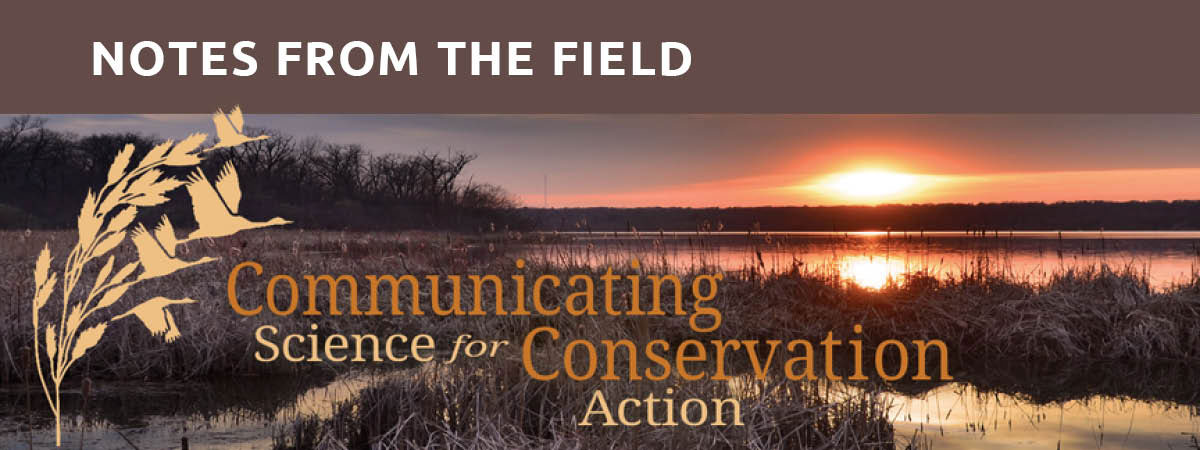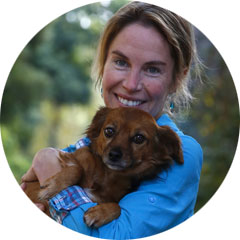At the Conference: North American Congress for Conservation Biology
Blogging in from Madison Wisconsin, where I’ve just joined up with members of Project Coyote’s Science Advisory Board for the North American Congress for Conservation Biology Conference.
Science Advisory Board members David Parsons and Adrian Treves are presenting today in a session titled Communication at the Intersection of Science and Policy: Progress and Pitfalls Between Scientist, Government Agencies, and the Media, a hot topic in the conservation world. Dave’s presentation will address the evolving state-federal relationship governing the Endangered Species Act (ESA) decision-making process, bringing much-needed attention to the undue influence of state wildlife agencies, commissions and governors on management decisions made by the U.S. Fish and Wildlife Service. Dave will highlight a case study focusing on the Mexican wolf recovery program that demonstrates how state influence over federal policies and decisions has hindered recovery of this critically endangered species. Voicing many of the points raised in our recent blog post, Dave will press for a process that elevates best available science over special interest politics as the basis for ESA decision making
Adrian Treves will identify three political strategies in his presentation that have been used to undermine wildlife conservation in the US, and he’ll illustrate how the Public Trust Doctrine and the ESA mandate that federal agencies use best available science in their decision-making processes. He will provide case studies showing how agencies have influenced the composition of scientific advisory panels, cherry picked science that favors a particular group, and attempted to redefine ‘best available science’ and even gut the ESA. He will also present a transparent, replicable and independent method to uphold scientific integrity.
Catching up with Science Advisory Board members at the conference. From left to right; Dave Parsons, myself, Adrian Treves and Bob Crabtree.
Also today, Michael Soulé, one of the original founders of the Society for Conservation Biology, will be presenting a talk called Subversive Ecology. Dr. Soulé is a member of Project Coyote’s Science Advisory Board, and he is widely considered the founding father of conservation biology. His talk addresses the “five prongs on conservation’s pitchfork” that include overhunting and overfishing and the annihilation of megafauna such as large, keystone predators that are reducing the viability of the Earth’s residual wild biota. He calls for unconventional (subversive) tactics that leapfrog conservation convention.
Project Coyote Science Advisory Board members Jeremy Bruskotter and Adrian Treves are co-organizing a Tuesday session titled Social, Ecological and Political Dimensions of Compelling Carnivore Conservation. That session provides an overview of American attitudes towards predators and predator control from 1978 through 2014. He will show how attitudes towards historically stigmatized species like wolves and coyotes have shifted significantly over the course of 40 years.
In that same session, Bob Crabtree will focus on canines in Yellowstone and what they can teach us about lethal control and unregulated killing of a territorial species. Using a meta-analysis and original data from a 20-year study in Wyoming, he will demonstrate how coyotes exhibit strong compensatory responses following exploitation, suggesting that traditional lethal control practices work against their stated goals.
During the week, Project Coyote Science Advisory Board members and I will gather with colleagues who are part of our Large Carnivore Working Group to discuss how the Public Trust Doctrine can be used to further wildlife conservation, and how the ecological sciences can be better coupled with the social sciences to address human-predator conflicts. You can watch a clip of Adrian Treves discussing the Public Trust Doctrine at our first Large Carnivore Working Group meeting in Yellowstone National Park.
I’m excited to be here with members of our team and colleagues from across the globe, and looking forward to some lively discussion about how we can move wildlife conservation forward in an ever-changing world.
To learn more about these issues, I also invite you to visit our website and explore our Science and Stewardship program.
Blogging out,
Camilla



